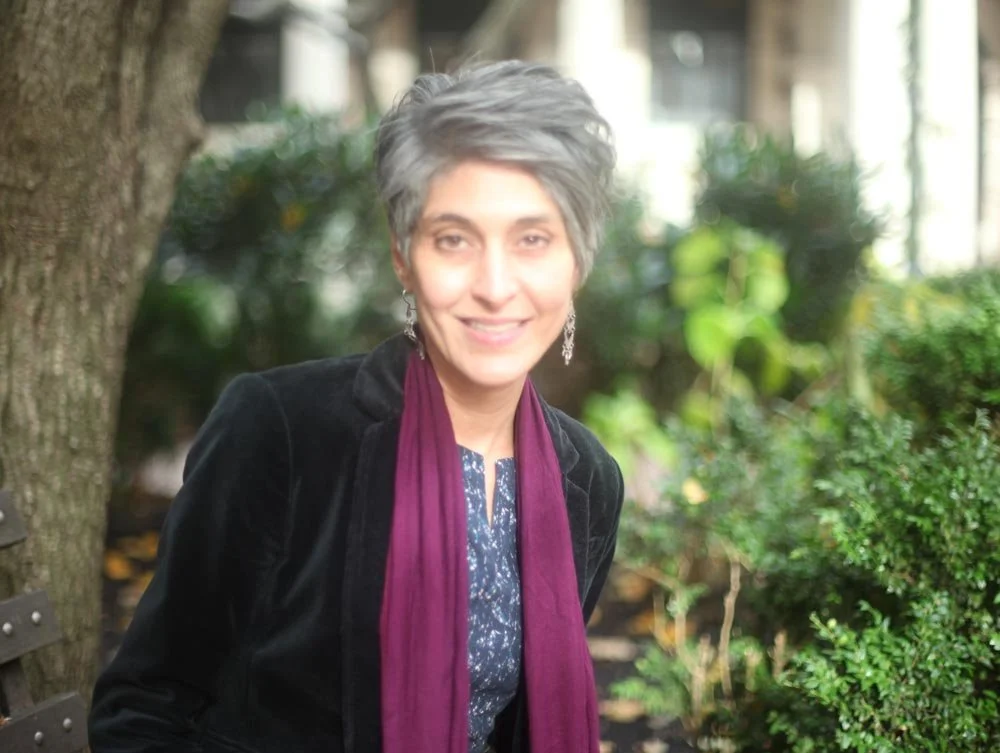In this episode of the Speaking Out of Place podcast, Professor David Palumbo-Liu and Azeezah Kanji talk with Anthony Arnove and Haley Pessin about their new volume Voices of a People’s History of the United States in the 21st Century: Documents of Hope and Resistance. This book is not only a beautiful archive of people's struggles in the 21st century, but also a powerful tribute to and continuation of the work of professor and radical historian Howard Zinn. We speak with Anthony and Haley about the histories of struggles and the possibilities for building a more beautiful future.
Anthony Arnove is the editor of several books, including, with Howard Zinn, Voices of a People’s History of the United States and Terrorism and War. He wrote the introduction for the thirty-fifth anniversary edition of Zinn’s classic book, A People’s History of the United States. Arnove cofounded the nonprofit education and arts organization Voices of a People’s History of the United States, wrote, directed, and produced the documentary The People Speak, and has directed stage and television versions of The People Speak in Dublin with Stephen Rea, in London with Colin Firth, and across the United States with various groups including Lincoln Center, the Brooklyn Academy of Music, and the Sundance Film Festival. He produced the Academy Award-nominated documentary Dirty Wars. Arnove is on the editorial boards of Haymarket Books and Tempestmag.org and is the director of Roam Agency, where he represents authors including Arundhati Roy and Noam Chomsky. He lives in Hopewell, New Jersey.
Haley Pessin is a socialist activist living in Queens, New York. They have participated in struggles against police brutality and mass incarceration, in solidarity with Palestine, in defense of abortion rights and reproductive justice, and as a legal service worker and union delegate for 119SEIU (Service Employees International Union). Pessin has spoken at conferences in Switzerland, Australia, Ireland, Quebec, and throughout the United States on the struggle for Black liberation. Their writing has appeared in New Politics and at Tempestmag.org, where they currently serve on the editorial board.
ANTHONY ARNOVE
We have to create alternative institutions to understand history. And to have conversations about how we can intervene because these conversations are increasingly being criminalized, and librarians are being fired and punished. Teachers are also being fired. Whole colleges are being taken over and certain courses are being labeled as not credit-worthy and being canceled. And while conversations around critical race theory and other topics are being declared illegal, there's a long history of book banning in this country. There's a long history of criminalizing dissent in this country, but I do think we all have to recognize that we're in a much more dangerous moment right now, where a new form of McCarthyism is emboldened and we have to speak out against that.
*
From Xiuhtezcatl Tonatiuh Martinez’s “To Fight for a Just Climate Is to Fight for Everything That We Love” in Chapter 8: OUR RESISTANCE MUST BE INTERSECTIONAL":
Climate action has become woven into every aspect of our society. I remember that time so clearly. It wasn't just activists and politicians who were building the future. Artists, creatives, storytellers, actors, and athletes began realizing their part in these movements to shape culture and reach the masses. Entrepreneurs, designers, architects, and poets began to reimagine what our society could look like if we used this great time of crisis as humanity's most unifying moment.
I remember the shows I played and how we transformed those arenas into places of celebration and unity. The idea of being an activist was left behind. We realized that it is within our power as humanity and identity that belongs to all of us. To change the story and to build the world we've always known was possible. The place the world is in is a result of us striking the balance between technology, innovation, culture, and the ancient wisdom and teachings of the original peoples of this earth. Here we are, 10 years after changing everything to redefine our legacy, carried on in flowers and songs.
Photo credit: Francesca Ruggiero and Eric Soucy
*
Speaking Out of Place, which carries on the spirit of Palumbo-Liu’s book of the same title, argues against the notion that we are voiceless and powerless, and that we need politicians and pundits and experts to speak for us.
Judith Butler on Speaking Out of Place:
“In this work we see how every critical analysis of homelessness, displacement, internment, violence, and exploitation is countered by emergent and intensifying social movements that move beyond national borders to the ideal of a planetary alliance. As an activist and a scholar, Palumbo-Liu shows us what vigilance means in these times. This book takes us through the wretched landscape of our world to the ideals of social transformation, calling for a place, the planet, where collective passions can bring about a true and radical democracy.”
David Palumbo-Liu is the Louise Hewlett Nixon Professor and Professor of Comparative Literature at Stanford University. He has written widely on issues of literary criticism and theory, culture and society, race, ethnicity and indigeneity, human rights, and environmental justice. His books include The Deliverance of Others: Reading Literature in a Global Age, and Speaking Out of Place: Getting Our Political Voices Back. His writing has appeared in The Washington Post, The Guardian, The Nation, Al Jazeera, Jacobin, Truthout, and other venues. Twitter @palumboliu
Apple Podcasts · Spotify · Website



















































